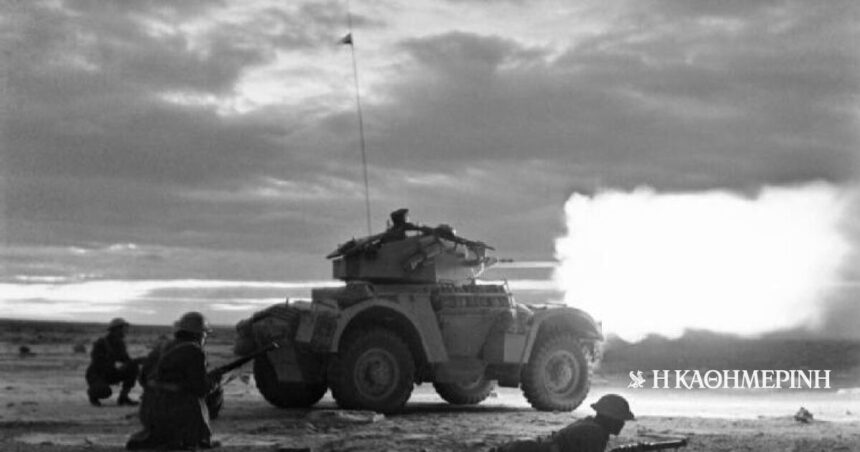In the fall of 1942 it became apparent that Germany had reached the limits of its expansion. German troops on the one hand failed to capture Stalingrad and pave the way to secure the hydrocarbon-rich Caucasus region and on the other they were defeated at the second battle of El Alamein. In particular, the defeat at El Alamein, Egypt marked the end of the dreams of the Germans and their Italian allies for dominance in the North African theater of war.
In the summer of 1942, during the First Battle of El Alamein, British troops succeeded in preventing the Axis forces from reaching Alexandria, Egypt, and the Suez Canal, control of which was considered of utmost importance to the British. In anticipation of a new offensive by the Germans, in mid-August the British military leadership placed in command of the 8her Army General Bernard Montgomery, a senior officer who had fought in the Battle of France early in the war and starred in Operation Dynamo to clear the French coast of British and French troops. At the head of the German forces was Erwin Rommel, “the desert fox”, who had demonstrated his operational skills both in the Battle of France and in the first phase of the war in North Africa.
The Allied forces launched their attack on El Alamein on October 23, 1942, meeting strong resistance from German-Italian troops. After ten days, however, the first cracks in their defense appeared, which Montgomery’s forces took advantage of. The German soldiers began to retreat towards Tunisiawhile the Italians, not having munitions and food, surrendered to the Allies. The battle ended on November 11 with a clear victory for the Allies.
On the British side, a climate of optimism for business development began to prevail. Churchill even claimed that “this is not the end. It’s not even the beginning of the end. But it may be the end of the beginning’ of the war. On the other hand, Rommel did not lose his confidence that he could reverse the outcome of operations, even though he suffered many losses during his retreat. His main concern was to reach the Tunisian ports before his opponents could surround him, as American and British troops had already landed in Morocco.
Rommel’s efforts to mount a strong defense in Africa they failed. On January 22, 1943, Montgomery’s men launched an attack on Tripoli, Libya, which they captured the next day. The bravery of the British soldiers of 8her Army in the Battle of Tripoli was even praised by Churchill, who in a speech in February 1943 stated: “Let me therefore assure you, soldiers and airmen, that your countrymen regard your work with admiration and gratitude, and that after the war, when any one is asked what he did, it will suffice to answer, “I went forth and fought with the Army of the Desert”. And when history is written and all the facts are known, our exploits will shine forth and inspire song and story long after we who are gathered here are dead.”
Column Editor: Myrto Katsigera, Vassilis Minakakis, Antigone-Despina Poimenidou, Athanasios Syroplakis




